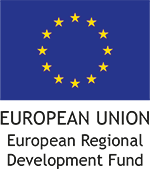It can be confusing. It is confusing. Old habits meeting new knowledge. There are things we’ve always done in a certain way and now we are beginning to comprehend– all of a sudden as it seems – many things have been done wrong in one way or the other. We have used wrong ingredients to make beauty products, we have made clothes and many other necessary daily items out of materials that are now being labeled as very dangerous either to our health or nature. These are just some examples, the list of things we need to think over seems endless and very uncomfortable.
Change is always a long and complicated process. Everyone agrees that littering is something we should avoid because it doesn’t look good. We use tidiness as an indicator of many things, it tells us the grade of civilization, even. Littering is also not acceptable because it can be harmful to animals and to some technical gadgets that are exposed to litter, for example boat motors. But after people started to analyse the litter picked up from the sea and shores, the list of the negative sides of littering has grown longer and more serious.
Here in Finland we started to systematically collect data from our Baltic shores in the 2012 as partners of the EU-funded Marlin project. The results were alarming. Our image of our beloved neat and tidy Finland changed dramatically as we were reporting the amount of litter we found on our beaches and we were forced to make the very uncomfortable conclusion that the Finnish beaches were most littered of the four participating countries.

The amount of plastics we found was shocking. It was impossible to explain the problem look smaller in any way. We had to start asking around about the different kinds of plastics we found and the more we knew the more alarmed we grew. For example, when we came across small round plastic pearls in the river Aura near Turku the first time, we didn’t know what they were. We learned that they we very common raw material for the packaging industry and that they probably had escaped from a hole in a shipping container. We have found lots of these pearls since. We just didn’t see them before.
Knowledge adds to pain but it is the only way to try to understand the problem and where it originates. “Know your enemy” said Sun Tzu to war strategists. If we do not know where the litter comes from, if we do not know how it ends up in the seas and waterways and if we do not understand the quantity of the problem and the effect it is having on our seas, we cannot fight this battle. Every number we can prove, every fact we can find and every piece of knowledge we have will help us deal with the problem. Closing one’s eyes never made anything disappear.
NGOs are doing enormously important work around the Baltic Sea making this problem visible. Collecting litter from the beaches with your own hands is an eye-opener for anyone. Those who have done it and have had their eyes opened are much more willing to understand and implement information delivered by scientists and they are also much more willing to change their habits and their way of thinking. NGOs are also the best imaginable link between scientists and the common people, when problems and solutions need to be made understandable to people without a university degree in chemistry, for example. I do hope that we can continue our work in making the plastic polluting visible and exposing the problem in order it to be solved. Knowledge foregoes change on all levels.
If you haven’t yet participated in a clean-up day by sea, lake or river, please do it next summer. You will be surprised.


